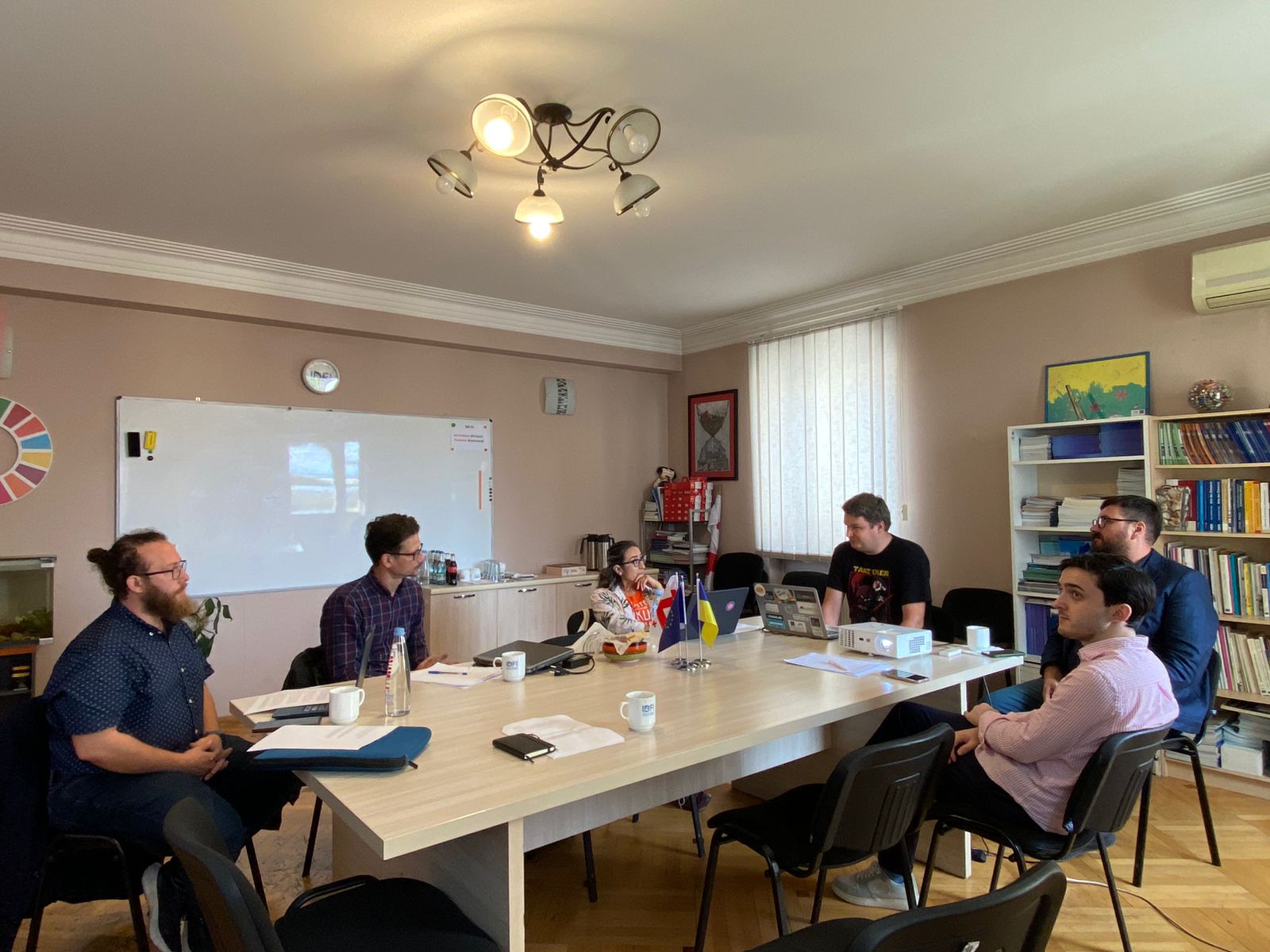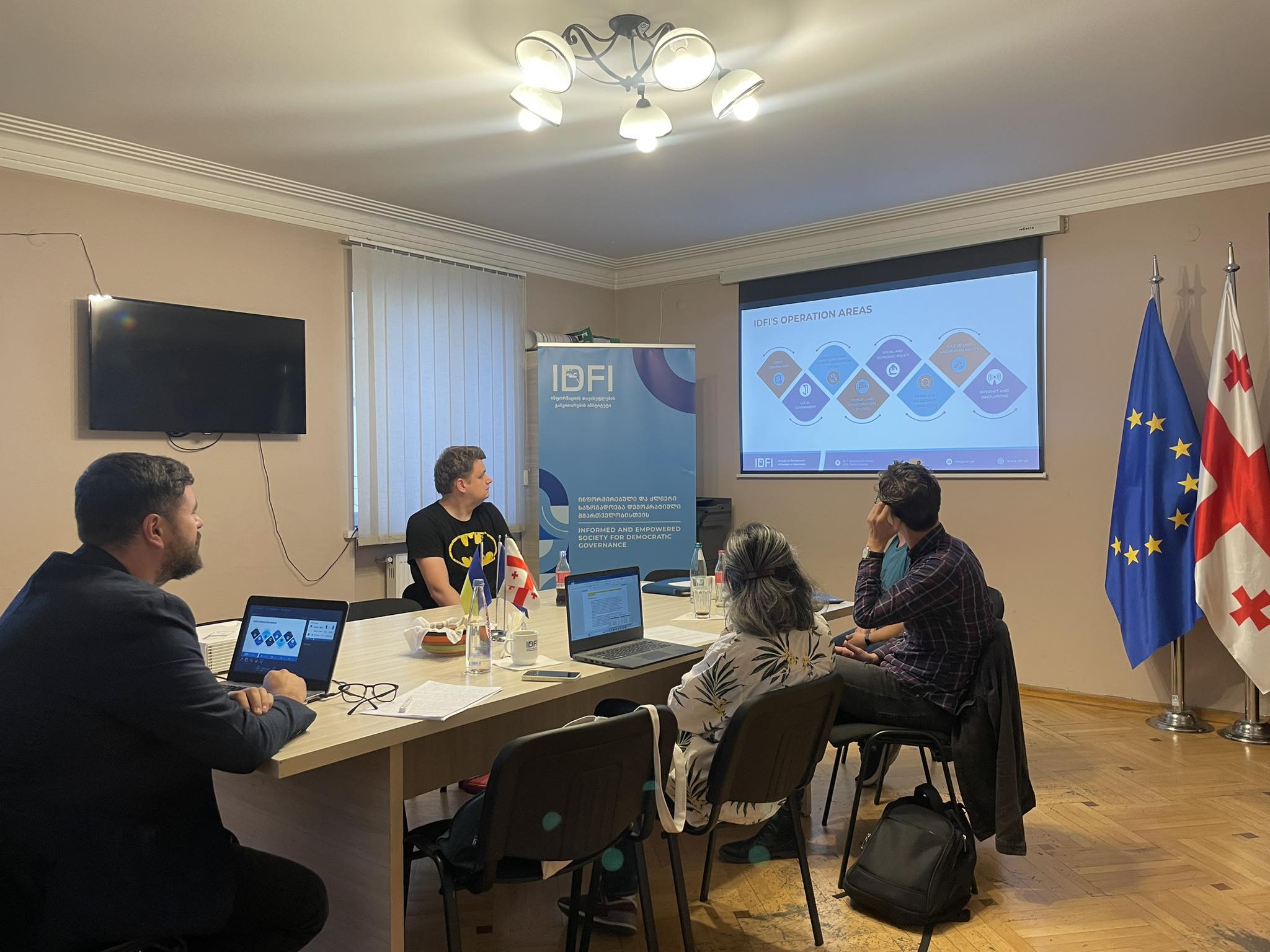


 On September 20-21, the Institute for Development of Freedom of Information (IDFI) held meetings with partner organizations from the Czech Republic, Armenia, Slovakia, Hungary and Poland within the framework of the project "Common Memory of the South Caucasus and Visegrad countries - occupiers or liberators? Democracy or Tyranny?", financed by the International Visegrad Foundation.
On September 20-21, the Institute for Development of Freedom of Information (IDFI) held meetings with partner organizations from the Czech Republic, Armenia, Slovakia, Hungary and Poland within the framework of the project "Common Memory of the South Caucasus and Visegrad countries - occupiers or liberators? Democracy or Tyranny?", financed by the International Visegrad Foundation.
Within the framework of the meetings, the partner organizations introduced each other to their field of activity and talked about the action plan developed within the project. The main issue was related to the common memory of the South Caucasus and Visegrad countries, the history of repressed persons, future plans, and those changes that will make the next steps of the countries participating in the project more effective. In addition, the partners shared their experiences with each other regarding the educational projects and discussed the possible methods and existing practices to interest the younger generation in issues of common memory. It was planned to create a short documentary film within the framework of the project, which will be shown in Georgian schools. Also, analytical papers will be prepared, which will be translated into English, Polish, Czech, and Slovak languages.
 Anton Vatcharadze, head of the memory and disinformation studies department of the Institute for Development of Freedom of Information (IDFI), focused on the characteristics of repressed persons in Georgia, the stories of their descendants, and the ways and importance of transmission between generations.
Anton Vatcharadze, head of the memory and disinformation studies department of the Institute for Development of Freedom of Information (IDFI), focused on the characteristics of repressed persons in Georgia, the stories of their descendants, and the ways and importance of transmission between generations.
The meetings took place in a discussion mode, within which the parties discussed options and possible obstacles for presenting the collected interviews and stories.
The leading organization of the project is Post Bellum, whose main project is "Memory of Nations". This is a collection of memories of people who lived through the totalitarian era in the 20th century. The database also includes photographs, newspapers, and various historical records. The collection consists of about 12,000 stories and is available to the public through an online database.
Today, in addition to the main project, Post Bellum implements 24 international projects around the world.
At the end, the partner organizations visited the Museum of Repressed Writers in the Writer’s House of Georgia and once again emphasized the importance of the project and future cooperation.
The project is implemented with the financial support of the International Visegrad Foundation.